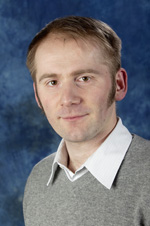Head of the Department, Map Collection, Herder Institute.

In my doctoral thesis, I explore the politics of memory in divided Germany regarding forced migration after the Second World War; my habilitation (second book) deals with environmental history and analyzes international congresses during the 19th century and the debates about future resource supply in Europe. At the moment, I prepare a project on the International Map of the World 1:1,000,000 and the Karta Mira 1:2,500,000.
Humanities Fellow, Institute for Advanced Studies, Central European University.

My doctoral thesis, “Constructing Imperial Spaces: Habsburg Cartography in the Age of Enlightenment,” examines the role of Habsburg cartography in the second half of the eighteenth century in the process of imperial expansion and consolidation. I analyze the production, circulation and use of large-scale topographic and border maps for the provinces of Transylvania, Lombardy and Austrian Netherlands, and show how cartography influenced the development of a new imperial identity and the process of state centralization. Based on archival sources located in Vienna, Brussels, Cluj-Napoca, Milan, Paris and Sibiu, I show how Maria Theresa’s and Joseph II’s desire to map their dominions led to the establishment of imperial corps of military engineers and the development of a network of scientific centers promoting the study of astronomy and geography. These mapmaking institutions and their cartographic production paved the way for the Habsburg monarchs’ military, economic and administrative reforms in the eighteenth century.
Post-Doc Fellow, Leibniz Graduate School, Herder Institute

My current research project analyzes the social and economic transformation of Central Europe, with a special focus on Hungary, between 1979 and 2008.
My doctoral dissertation “Destined or Doomed? Hungarian dissidents and their Western Friends, 1973-1998” focused on the relationships, the exchange of ideas, transfer of knowledge, and contributions to the peaceful revolutions of 1989 and European history of Central European opposition movements and their supporters in the U.S., West Germany, Austria, and France.
In another long-term research project, I compare the history of industrialization and deindustrialization in the American rustbelt, the German Ruhrpott, and Upper Silesia.